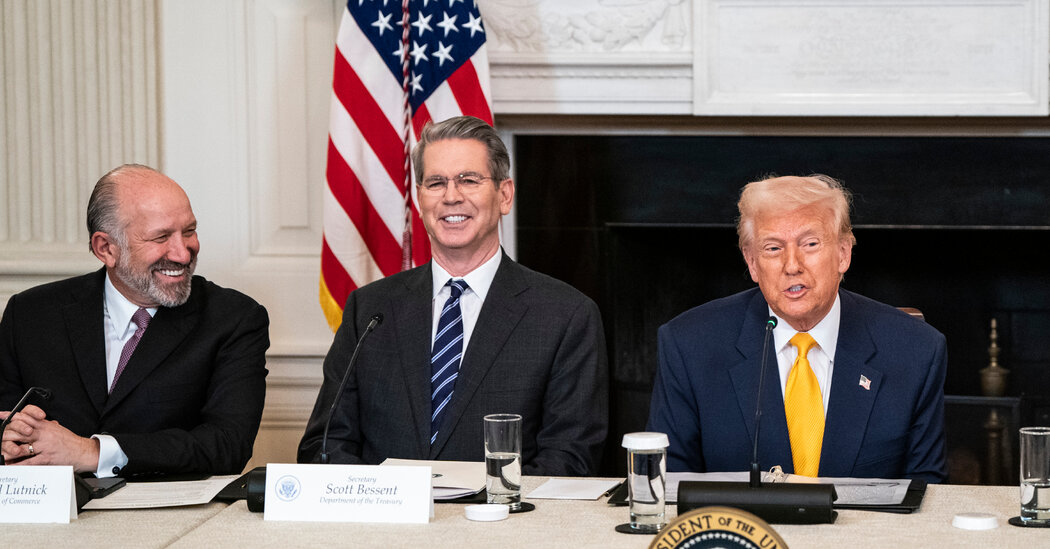President Trump said on Friday that the United States and China would begin their second round of economic talks on Monday in London, resuming negotiations over tariffs and global supplies of rare earth minerals that have begun to threaten global economic growth.
The American delegation will be led by Treasury Secretary Scott Bessent, Commerce Secretary Howard Lutnick and Jamieson Greer, the United States trade representative, Mr. Trump said in a post on Truth Social. It was not immediately clear who would represent China, but He Lifeng, China’s vice premier for economic policy, led the previous round of talks in Switzerland.
The talks come at a fragile moment for the global economy, which has been slowed by uncertainty and supply chain disruptions. The United States in April paused some of the tariffs that Mr. Trump imposed on dozens of countries to provide time for trade negotiations.
Those levies, as well as steep import taxes on Chinese goods, were thrust into further uncertainty in late May, when a U.S. trade court deemed them illegal. The tariffs, however, currently remain in place while an appeal process unfolds. As the U.S. delegation meets in London, the Trump administration has a deadline to make its case to a federal appeals court for why the tariffs should continue.
The announcement of Monday’s talks came a day after Mr. Trump held a call with Xi Jinping, China’s president, that was intended to break a deadlock that threatened to derail a trade truce that the countries reached in early May in Geneva. Under that truce, the United States reduced Mr. Trump’s tariff on Chinese imports to 30 percent from 145 percent, and China lowered its import duty on American goods to 10 percent from 125 percent.
But in recent weeks, the tension between the two countries returned, tied to mineral exports to the United States, which China had recently halted. The Trump administration also proposed a plan to revoke visas for Chinese students associated with the Communist Party or studying in critical fields.
Mr. Bessent, who has been leading the negotiations with China for the United States, recently acknowledged that the talks had stalled and suggested that it would be up to the two leaders to get them back on track.
Then, last week, Mr. Trump said on social media that China had “violated” the agreement that was brokered in Switzerland. Beijing rejected that notion, accusing Washington of severely undermining the trade truce.
The back and forth continued this week when Mr. Trump wrote on social media on Wednesday that Mr. Xi was “VERY TOUGH, AND EXTREMELY HARD TO MAKE A DEAL WITH.”
A day later, however, Mr. Trump said that his 90-minute call with Mr. Xi had been productive.
“I just concluded a very good phone call with President Xi, of China, discussing some of the intricacies of our recently made, and agreed to, Trade Deal,” Mr. Trump said, adding that it “resulted in a very positive conclusion for both Countries.”
